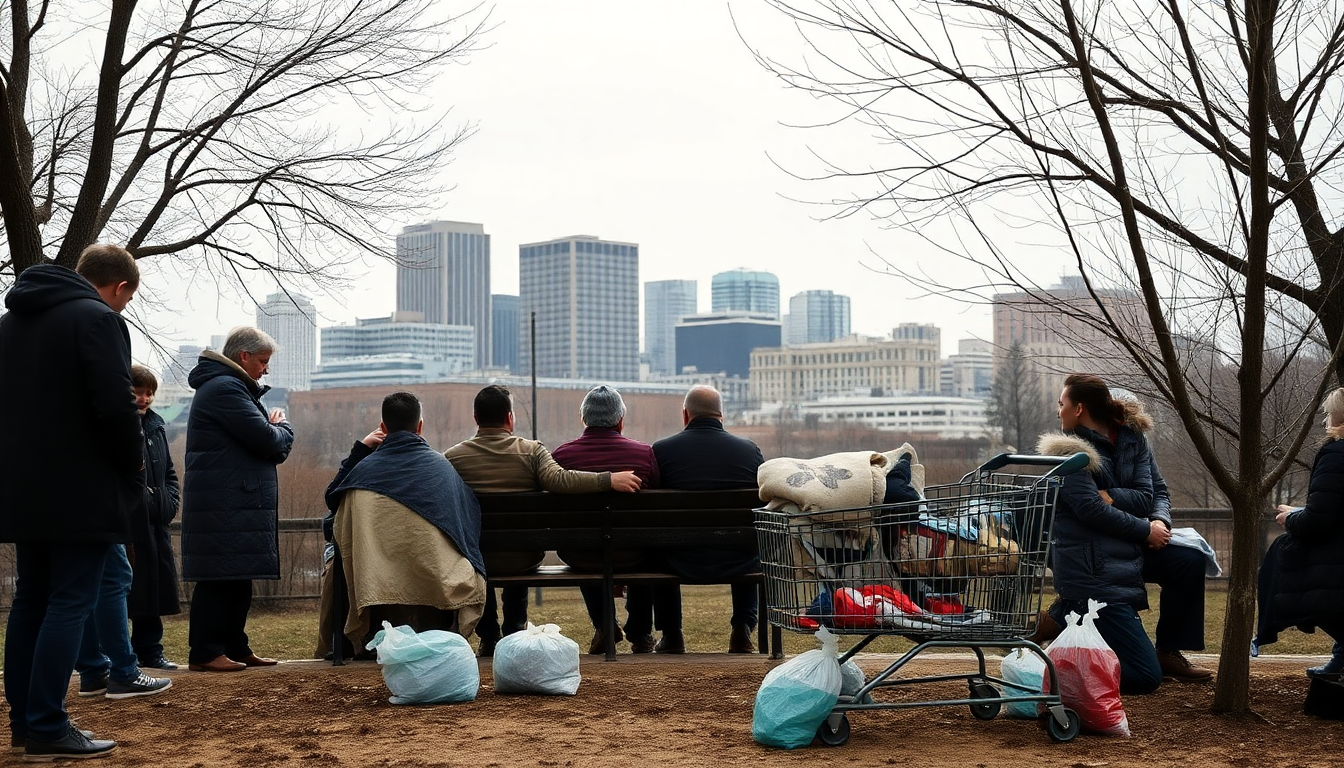Table of Contents
The issue of homelessness in Winnipeg has reached a critical point, as highlighted by the recent findings from the 2024 Street Census conducted by End Homelessness Winnipeg. This detailed survey, which has been a recurring effort since 2015, aims to shine a light on the challenges faced by the homeless population in the city.
On November 5, 2024, the census recorded at least 2,469 individuals experiencing homelessness, with an alarming 67.9 percent classified as chronically homeless—meaning they’ve faced homelessness for six months or longer. These statistics not only present a troubling picture but also underscore the urgent need for effective solutions.
The Landscape of Homelessness in Winnipeg
So, what’s really driving homelessness in Winnipeg? Understanding this complex landscape requires diving deep into the contributing factors. The 2024 Street Census provides crucial data that reveals just how persistent chronic homelessness is. Those who experience prolonged homelessness face a multitude of challenges, including mental health issues, addiction, and a lack of access to essential services.
But it’s essential to recognize that homelessness isn’t merely a result of individual circumstances. It’s deeply intertwined with systemic issues, particularly the shortage of affordable housing. As housing costs continue to climb, many residents find themselves priced out of the market.
Have you ever thought about how quickly someone can fall into homelessness due to rising rents? The statistics suggest that without a concerted effort to tackle these underlying issues, the cycle of homelessness will continue unabated.
Identifying Opportunities for Change
The findings of the Street Census also unveil significant opportunities for intervention. There’s a pressing need for more affordable housing options throughout Winnipeg, along with comprehensive support services that address the root causes of homelessness. Initiatives focusing on mental health support, addiction recovery, and job training are essential for helping individuals regain stability and reintegrate into society.
Investing in affordable housing not only offers immediate relief for those in need but also supports the long-term economic health of the community. By reducing the number of individuals experiencing homelessness, the city can alleviate the strain on social services and emergency healthcare systems. Isn’t it fascinating how addressing homelessness can lead to a more sustainable and prosperous environment for everyone?
Looking Ahead: Strategies for the Future
As we look to the future, it’s crucial to prioritize strategies that address both the immediate needs of the homeless population and pave the way for lasting change. This means fostering partnerships between government agencies, non-profit organizations, and the private sector to create a holistic approach to homelessness. By pooling resources and expertise from various sectors, Winnipeg can develop a comprehensive plan that tackles both the symptoms and the root causes of homelessness.
Moreover, community involvement is vital. Engaging local residents in the conversation about homelessness can lead to increased awareness and support for initiatives aimed at providing assistance. How powerful would it be if we all came together to create a more inclusive community where everyone has access to safe and affordable housing?
In conclusion, the findings from the 2024 Street Census serve as a wake-up call for Winnipeg. Addressing homelessness requires a multifaceted approach that prioritizes affordable housing and supportive services. With a collective effort, the city can make significant strides toward a future where homelessness is no longer a persistent issue. Together, we can make a difference.





